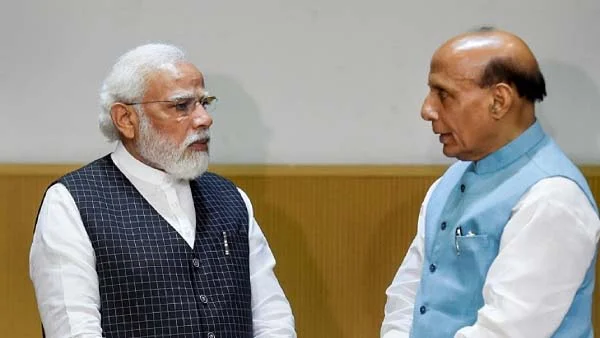New Delhi: The government has set up a nine-member committee headed by former Principal Scientific Advisor to the government, Prof K VijayRaghavan with the task of overhauling the DRDO.
Under directions of Prime Minister Narendra Modi and with a view to overhaul the Defence Research and Development Organisation (DRDO), Defence Minister Rajnath Singh has set up a nine-member committee of experts under Prof K VijayRaghavan to review and redefine the role of the department and submit a report within three months. Prof VijayRaghavan is former Principal Scientific Advisor to the Government of India and one of the key architects of the National Research Foundation (NRF).
The other members of the DRDO review committee are: Lt Gen (Retd) Subrata Saha, former Deputy Chief of Army Staff, Vice Admiral S N Ghormade, former Vice Chief of Navy Staff, Air Marshal B R Krishna, former Chief of Integrated Staff, Sujan R Chinoy, DG of MP-IDSA, Prof Manindra Agarwal of IIT Kanpur, S.P. Shukla, President SIDM, J D Patil of Larsen and Toubro, Defence, Dr S Unnikrishnan Nair, Distinguished Scientist, ISRO, and Ms Rasika Chaube, Financial Advisor, Ministry of Defence.
Conveying the decision of Minister Rajnath Singh, DRDO Chief Samir V Kamat informed the committee members that the terms of reference were:
- Restructuring and redefining the role of Department of Defence (R &D) and DRDO, as well as their relationship with each other and with academia and industry
- Maximise academia, MSME, and start-up participation in the development of cutting edge technologies
- Attract and retain high-quality manpower, including a system of project based manpower by a proper system of incentives and disincentives, with strict performance accountability, and weed out the non-performers
- Utilise the expertise of NRIs/foreign consultants, inter-country collaborations for development of cutting edge and disruptive defence technologies
- Modernise administrative, personnel and financial systems to achieve speedier implementation of projects
- Rationalisation of laboratory structures and their performance evaluation process
The Modi government’s decision to review the functioning of the DRDO and the entire defence research and production eco-system was a much-awaited development as the Prime Minister himself was concerned about the lack of accountability and delayed research in the organisation that functions typically as a government PSU and considers the entire defence processes from research to development to production as its very own fiefdom.
Rather than be supportive of the private sector and help in the best procurement of hardware platforms for the Indian Armed Forces, the DRDO has often acted as a hurdle in defence acquisitions in the name that it was developing the very product that was being imported and in the name of indigenisation. Classic examples are anti-tank guided missiles and unmanned aerial vehicles apart from many others. Yet at the same time, the DRDO has done some path-breaking work in guided missile systems.




